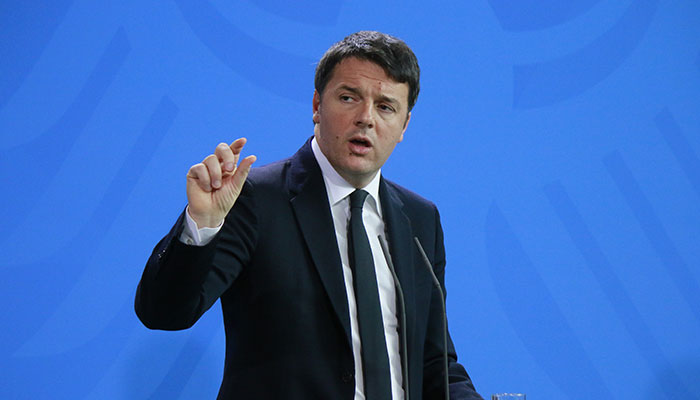web_matteo-renzi_shutterstock_468902261.jpg

Italian prime minister Matteo Renzi has resigned after suffering a humiliating defeat in Italy's constitutional referendum
Renzi kept his promise to step down if he failed to convince the electorate of the economic merits of changing the constitution. These changes would have given him new powers to introduce the tough policies he thought were needed to revive Italy’s ailing economy.
The outcome – almost 60% of voters rejected the proposed reforms – is a humiliating one for Renzi and a major victory for the country’s populist movements.
Some observers saw the plebiscite as the next test of anti-establishment, anti-European Union and nationalist sentiment in Europe. Both Italy’s economic and political future has been thrown into doubt.
In an emotional address from the prime minister’s residence on Sunday, Renzi conceded defeat.
“I lost and I say this out loud even if with a lump in my throat, because we are not robots,” said Renzi, explaining that he would hand his resignation to the country’s president, Sergio Mattarella later on today.
“I did all I could to bring this to victory.”
Meanwhile, Italy’s far-left and far-right populist movements, which became unlikely bedfellows throughout the lead up to the referendum to drive Renzi from office, were jubilant.
In a blog post, Beppe Grillo, who heads the leftist Five Star Movement (MS5), hailed the result as a triumph for democracy.
He said Renzi’s “propaganda and lies” were the “first losers in this referendum”.
“Times have changed,” he wrote. “Sovereignty belongs to the people, now we [can] start to really apply our constitution.”
On the far-right, Matteo Salvini, president of the xenophobic Northern League, took to Twitter to praise US president-elect Donald Trump, Russian president Vladimir Putin, French far-right leader Marine La Pen and his party.
Viva Trump, viva Putin, viva la Le Pen e viva la Lega! https://t.co/r8FXztp9Am
— Matteo Salvini (@matteosalvinimi) 4 December 2016
The result is seen by some as the most recent reflection of a surge in support for populism and inward-looking, anti-immigration politics, following the UK’s Brexit vote in June and the election of Trump to the US presidency in November.
While the Northern League appeals to Italians who reject Renzi’s adamant policy that Italy has a moral obligation to rescue migrants crossing the Mediterranean, MSF attracts votes from across the political spectrum and is now the country’s main opposition. It too builds on widespread negative feelings about immigration and the establishment, with a focus on fighting corruption and political cronyism.
The referendum could lead to pressure on president Mattarella to call an early general election. However, in the first instance it will be up to him to put together a new government with the agreement from the country’s main parties.
Some observers argue that fears that Renzi’s referendum loss could be a precursor to an attempt by Italian Eurosceptics to exit the eurozone are exaggerated. An objection to the terms of the revised constitution, which would have created substantial executive power for Renzi and future prime ministers, are thought to have been more important in the outcome.
Dijedon Imeri, an analyst at IHS Country Risk, told Public Finance International that there are at least “two factors likely to preclude the worst-case scenario many fear”. First, it is likely that the new caretaker government will attempt to change electoral laws to make it more difficult for parties like MS5 to win power.
Also, Imeri said MS5 was unlikely to be able to muster the majority in both houses of Italy’s parliament necessary to organise a referendum on the euro, without the approval of mainstream parties.
The economic fallout, however, is likely to give a boost to the country’s populist parties. Imeri said the decision “significantly endangers” a private-sector led rescue plan for Italy’s oldest bank, Monte dei Paschi di Siena.
“This increases the risk of a state intervention to stave off the bank being wound down; such an intervention, in the form of a capital injection funded by taxpayers, would likely involve local bondholders taking a hit,” he explained.
“In the absence of some sort of compensation scheme for Italian savers who make up a significant portion of these junior bondholders, the political backlash could be significant.”












